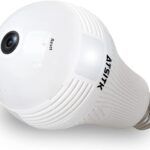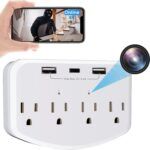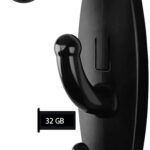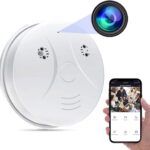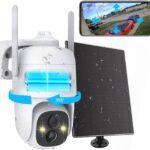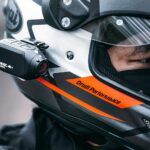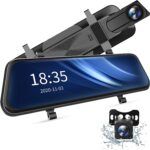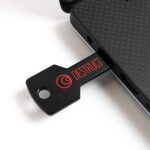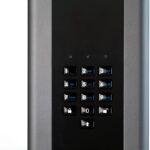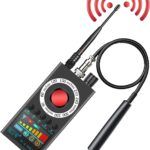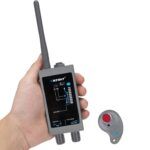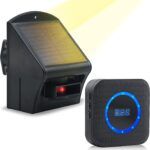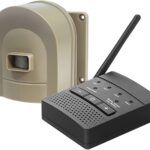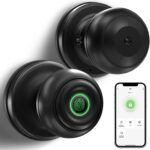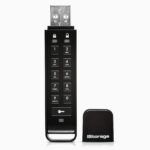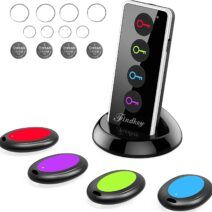- What is the difference between a hidden vehicle camera and a dash cam?
Both hidden vehicle cameras and dash cams are used to record footage while driving, but they differ in their placement and purpose. A dash cam is typically mounted on the windshield or dashboard of a vehicle and is meant to record the view from the driver’s perspective in case of an accident or other incident on the road. On the other hand, a hidden vehicle camera is designed to be discreetly installed in the vehicle, such as behind the rearview mirror or in the cabin, and can capture footage of the interior of the vehicle.
Hidden vehicle cameras are often used for security and surveillance purposes, such as monitoring the behavior of employees or passengers, while dash cams are primarily used for documenting accidents or incidents on the road. Both types of cameras can be useful for providing evidence in legal proceedings or insurance claims, but it is important to understand the specific laws and regulations in your area regarding the use of such cameras.
- Are hidden vehicle cameras legal?
The legality of hidden vehicle cameras can vary depending on the country, state, or province you are in. In general, it is legal to use a hidden vehicle camera for security purposes or in situations where there is a reasonable expectation of privacy. However, it is important to check local laws and regulations to ensure that you are not violating any privacy laws or other regulations.
Some common situations where it may be legal to use a hidden vehicle camera include monitoring a company-owned vehicle or protecting your own property against theft or vandalism. It is important to note that using a hidden vehicle camera for illegal purposes, such as spying on someone without their knowledge or consent, is not always legal and may result in serious consequences.
- Can hidden vehicle camera footage be used as evidence in court?
The footage captured by a hidden vehicle camera can be used as evidence in court if it was obtained legally and meets certain criteria. The admissibility of the footage will depend on factors such as the location and circumstances of the recording, whether it was obtained with the consent of the parties involved, and whether it violates any privacy laws. It is important to note that using a hidden vehicle camera to intentionally record private conversations or activities in a vehicle without the consent of those involved may be illegal and could result in criminal charges. It is always best to consult with a legal professional before using a hidden vehicle camera or relying on its footage as evidence in any legal proceeding.
- Is it legal to use a hidden car camera to record a mechanic?
In general, it is legal to use a hidden car camera to record your mechanic, as long as you are not violating any laws regarding privacy. However, it is important to check your local laws and regulations, as some states or countries may have specific rules about recording conversations or capturing video footage without the knowledge and consent of all parties involved.
In most states it is not legal to secretly record conversations you are not part of. As tempting as it may be to spy on your mechanic while they repair your vehicle, it may not be legal.
Additionally, it is important to consider ethical concerns about using hidden cameras to record others without their knowledge or consent. If you have concerns about your mechanic’s trustworthiness or the quality of their work, it may be best to find a new mechanic rather than resorting to hidden surveillance.
Keep your vehicles safer with hidden cameras, dash cams, or other surveillance devices specifically designed or suitable for use in any vehicle. Track your vehicle’s movements, record interactions with police, or get evidence in case of accidents.
Showing 1–30 of 41 products

Akaluli Hidden Pen Voice Recorder
$43.99
Amgur Rear View Mirror Camera (Front & Back)
$167.77-
Sale!

Anlork Small Portable WiFi Nanny Cam
$29.99 
Anysun Car Key Hidden Security Camera
$49.99
Casoda WiFi License Plate Backup Camera
$48.99
Clodgdlo Car Key Hidden Spy Camera & Microphone
$39.99
Cooau WiFi Mini Dash Cam Recorder
$89.99
Drift Ghost 4K+ Motorcycle Action Camera
$199.99
Ehomful Mini Cop Spy Camera
$29.99
Foxpark Solar Wireless Vehicle Backup Camera
$179.99
Garmin Mini Dash Cam
$129.99
GLK License Plate Backup Camera
$35.99
Hereta Spy Camera Glasses
$74.99
Hussell USB Car Charger Adapter
$10.99
iZeeker Dashboard Camera
$39.99
Kingslim Dual Front & Back WiFi Dash Cam
$109.99
Lawmate Coffee Cup Covert Camera
$399.00
Ldcx Wireless RF Item Finders
$18.98
MHCABSR WiFi Vehicle Parking Camera
$92.99
Mom Faves Car Key Hidden Camera
$50.99-
Sale!

Onamicit Tiny Magnetic GPS Tracker (No Subscription)
$16.99 
Optimus Car GPS Tracker (OBD Plug-In)
$59.95
Optimus Vehicle GPS Tracker (Car Battery Installation)
$69.95
Optimus Vehicle GPS Tracker (Wireless)
$39.95
Orpnfi Wireless Charging Power Bank Hidden Camera
$69.99
Oucam Small WiFi Spy Camera
$17.99
Ovehel Mini Wireless Spy Camera
$19.97
PebbleBee Clip Keychain Bluetooth Tracker
$29.99
Pelsee P12 Mirror Dual Dash Cam
$129.99
Rerbo Hidden Camera Glasses
$47.99

Vehicle hidden cameras, dash cams, and tracking devices have become increasingly popular for various reasons such as enhancing security, monitoring driving habits, and recording accidents. Hidden cameras can be installed in a vehicle to monitor activity when the owner is not present, whereas dash cams are used to record footage while driving. Both of these devices can provide important evidence in the event of an accident or theft. Vehicle tracking devices use GPS technology to track the location of the vehicle and can be used for fleet management, monitoring teenage drivers, or recovering stolen vehicles.
When shopping for a vehicle hidden camera, dash cam, or tracking device, it is important to consider factors such as video quality, storage capacity, and ease of installation. Dash cams with high video resolution can provide clear footage in case of an accident, while hidden cameras with motion detection can alert the owner of any unauthorized activity in their vehicle. GPS tracking devices with real-time monitoring can provide up-to-date location information, and those with geofencing capabilities can alert the owner when the vehicle has entered or exited a specific area.
Finding a good vehicle hidden camera
Most customers needing a camera in vehicles first look for a dashboard camera. Many dash cams can also record interior of the vehicle, but this can hardly be considered a hidden camera suitable for discreet recording.
However, there are some products which can be placed inside vehicles to enable covertly recording video or audio footage. Most of these products are intended for other uses, but they can work well in cars, vans, RVs or other vehicle types depending on your needs.
Here are a few car hidden camera products which you can place inside vehicles:
 $39.99
$39.99The XISRU Hidden Pen Camera is a high-quality spy camera that is designed to be portable and easy to use. With a built-in 64GB internal memory, the spy pen can be used directly after receipt, and ther...
 $39.99
$39.99Clodgdlo Car Key Hidden Spy Camera is the perfect blend of functionality and covert surveillance. This compact and discreet device looks just like a car key, but it has a powerful built-in 64GB intern...
 $63.76
$63.76The Safety Tech HC-CROSS-DVR Cross Hidden Spy Camera is a discreet and versatile spy camera designed to capture people in the act, record live sports, and serve as a nanny camera. The tiny spy camera ...
 $6.53
$6.53The Fun&H Dice Mini Spy Camera by O-Nine brand is an innovative device that allows you to discreetly record photos and videos without attracting any attention. The camera is designed to look like ...
 $46.99
$46.99The Funscam Water Bottle Spy Camera is a unique and discreet way to capture video footage without arousing suspicion. With a 1080P full HD physical resolution, the camera produces clear and stunning i...
 $59.99
$59.99Introducing the Funscam Hidden Spy Camera, a portable water bottle with a built-in HD 1080P WiFi camera that provides clear pictures and details for remote monitoring. With the internet access availab...
 $79.99
$79.99The Symynelec Watch Spy Camera is a highly functional and versatile gadget that can be used for various purposes including interviews, life records, entertainment, sports, teaching, and home security....
 $36.99
$36.99Fuvision Pen Spy Camera is a high-quality, sleek and compact recording device that is ideal for those who require covert surveillance. This hidden camera pen recorder has been designed to look and fun...
 $35.98
$35.98Uimomn USB Flash Drive Hidden Camera is a discreet mini camera that looks like a USB drive and is small enough to not be noticed. It records high-quality 1080p full HD video at a frame rate of 30 fps ...
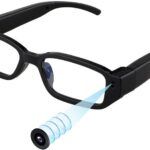 $47.99
$47.99RERBO Hidden Camera Glasses is a 1080P portable spy camera disguises as a stylish and discreet device designed to capture all your special moments. This camera features a perfect combination of HD cam...
 $399.00
$399.00Lawmate Coffee Cup Covert Camera is the perfect surveillance tool for anyone who needs to discreetly record video on the go. The camera is built into an ordinary coffee cup lid, making it easy to blen...
 $49.99
$49.99Yvoer Lighter Hidden Camera is a versatile device that serves three functions in one compact design. It is a spy camera, a functional electric cigarette lighter, and a USB flash drive. The hidden came...
Some of these devices, such as F&H Dice or SafetyTech Cross Necklace you could easily hang from your interior rearview mirror. Funcscam’s Water Bottle or Lawmate’s Coffee Cup you could simply place in your car cup holder. Other items may require a bit more creativity, but they can function as excellent hidden cameras in cars or other vehicles in certain situations.
Don’t forget power sources
For a hidden camera you will almost always want one with an internal rechargeable battery. Wireless spy cameras are best when you want them to remain hidden. We also recommend finding one with USB connection for charging.
With a USB connection you can easily use a USB power adapter to keep your hidden vehicle camera charged whenever needed.
Data storage
A hidden car camera may not always have access to WiFi for remote video streaming. In most cases you will want to store video footage on an SD card and retrieve it later. Choosing a camera without features such as Wi-Fi, remote notifications or night vision can also ensure your battery lasts longer.
But, it always depends on your particular needs or situation. Make sure to identify your specific needs and situation, and we are confident we can help you find the perfect hidden vehicle camera.
You may also be interested in:
Vehicle Hidden Cameras FAQs
Find hidden cameras for:


